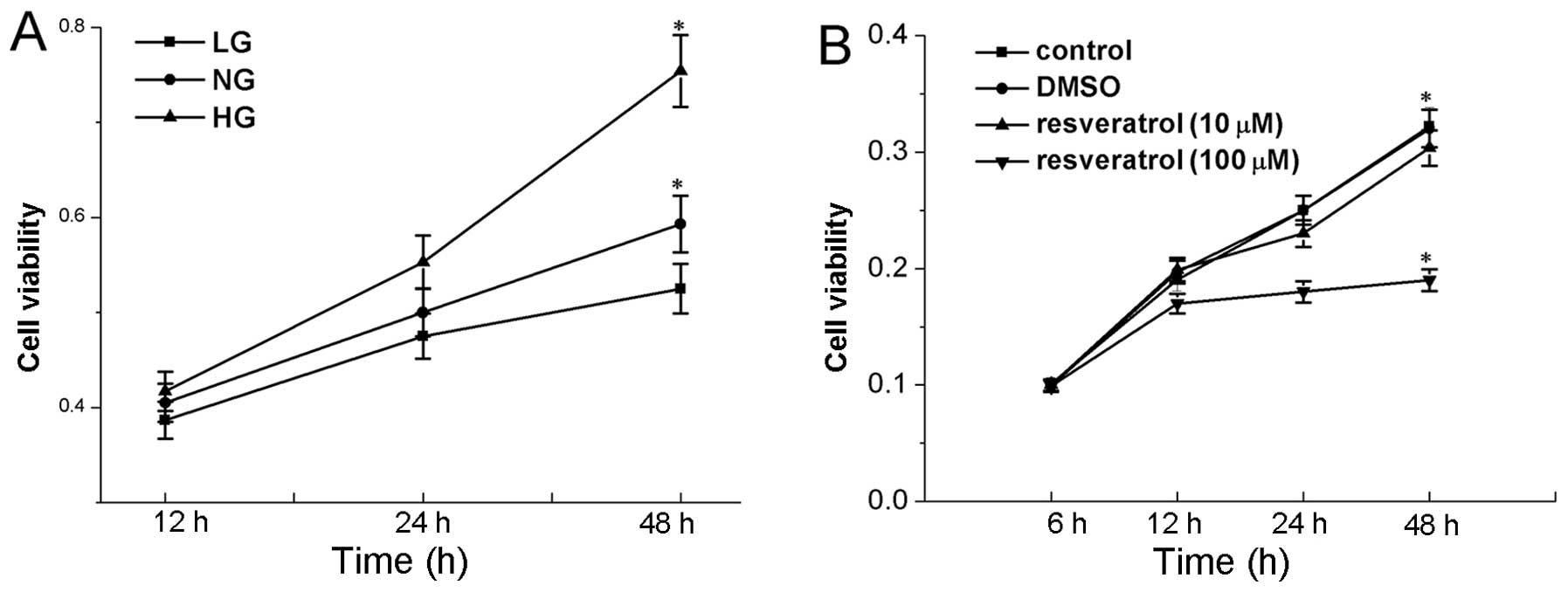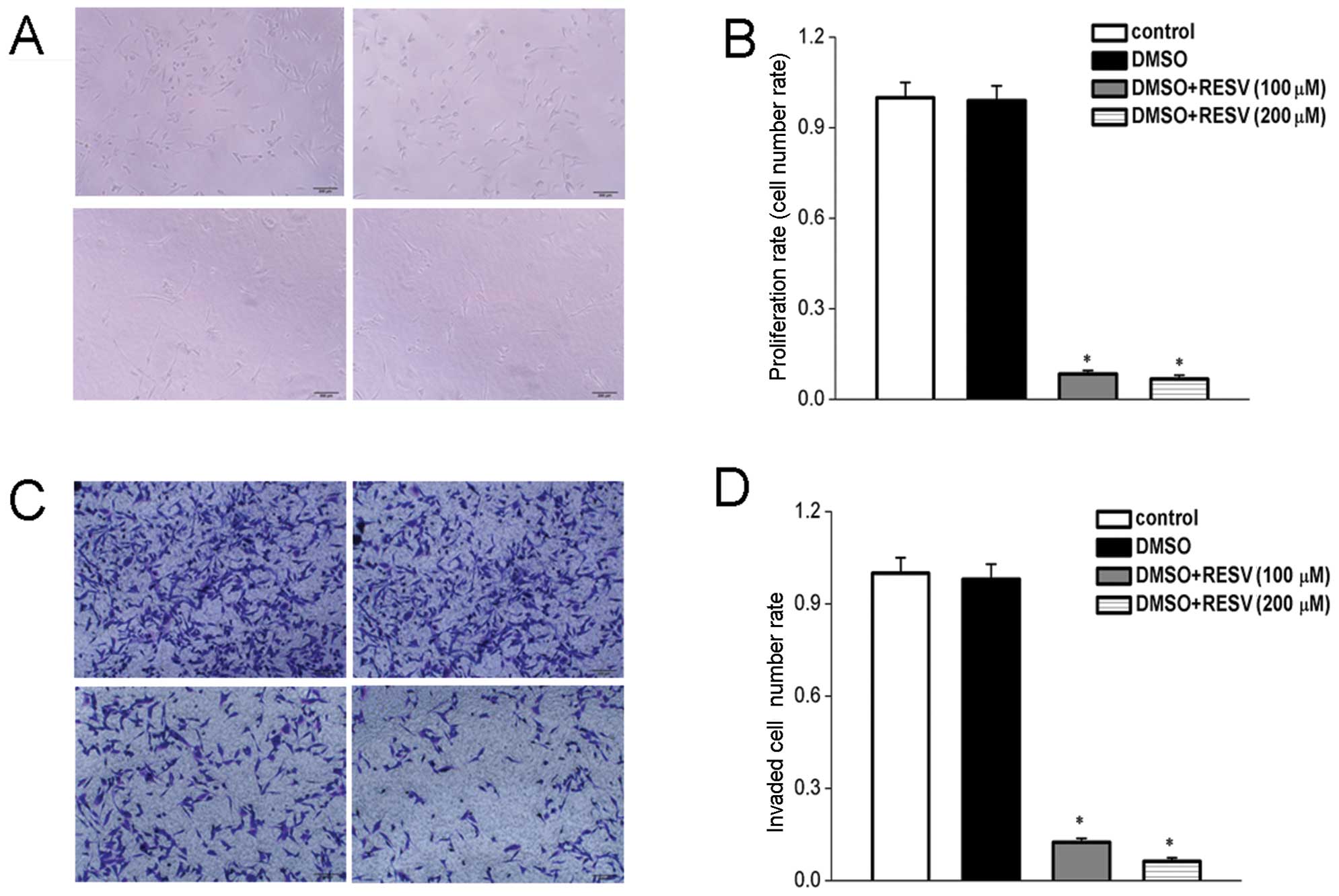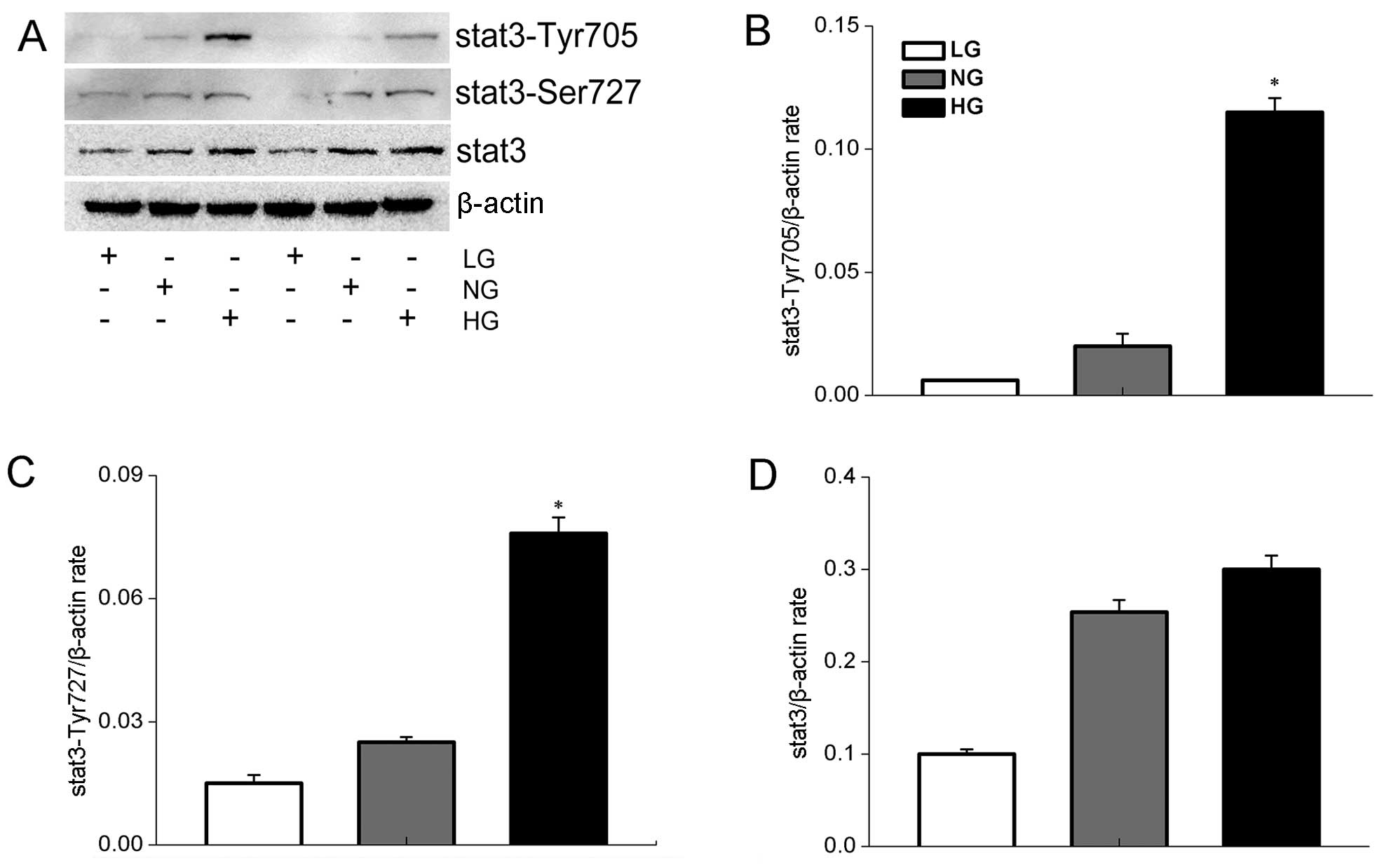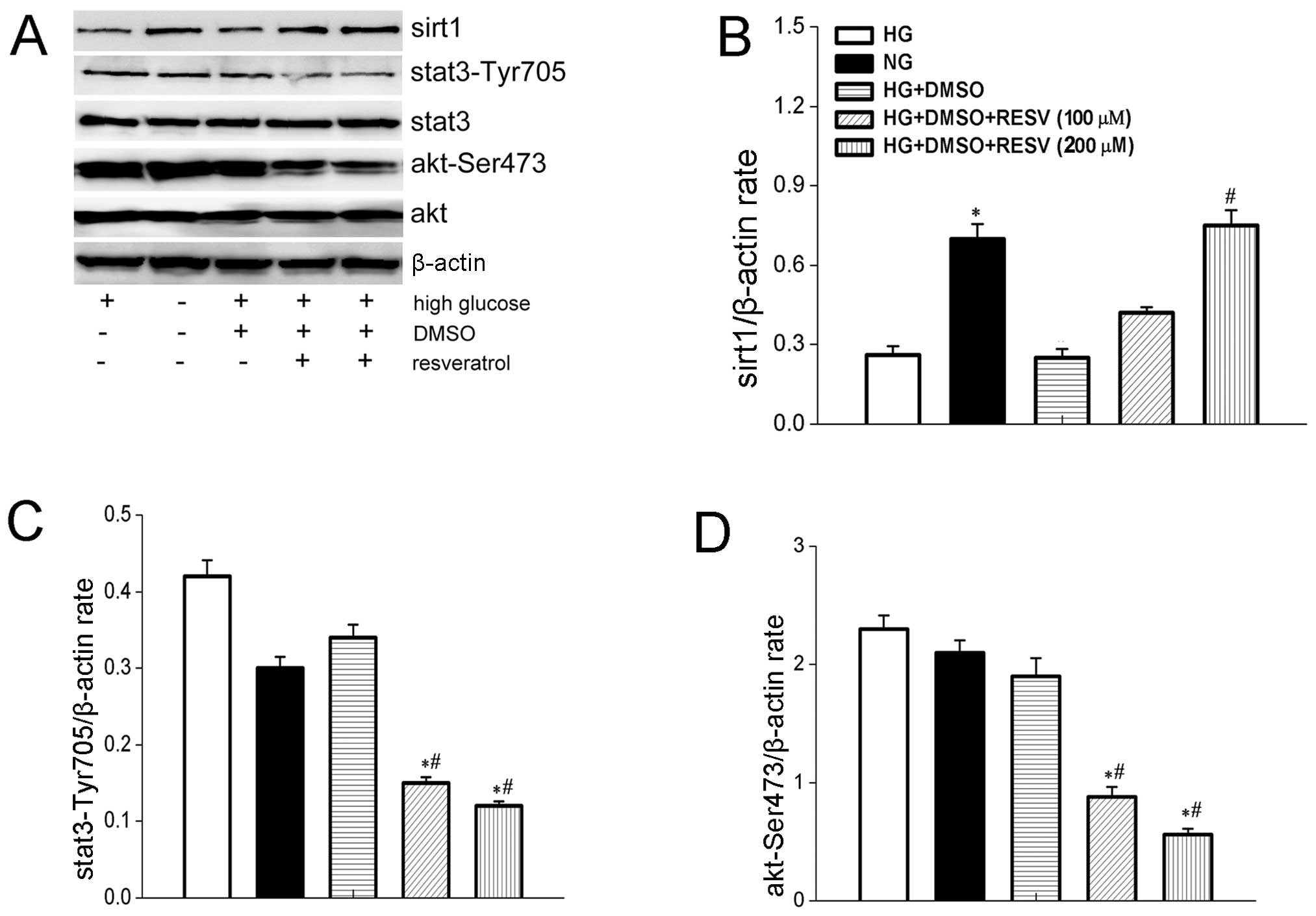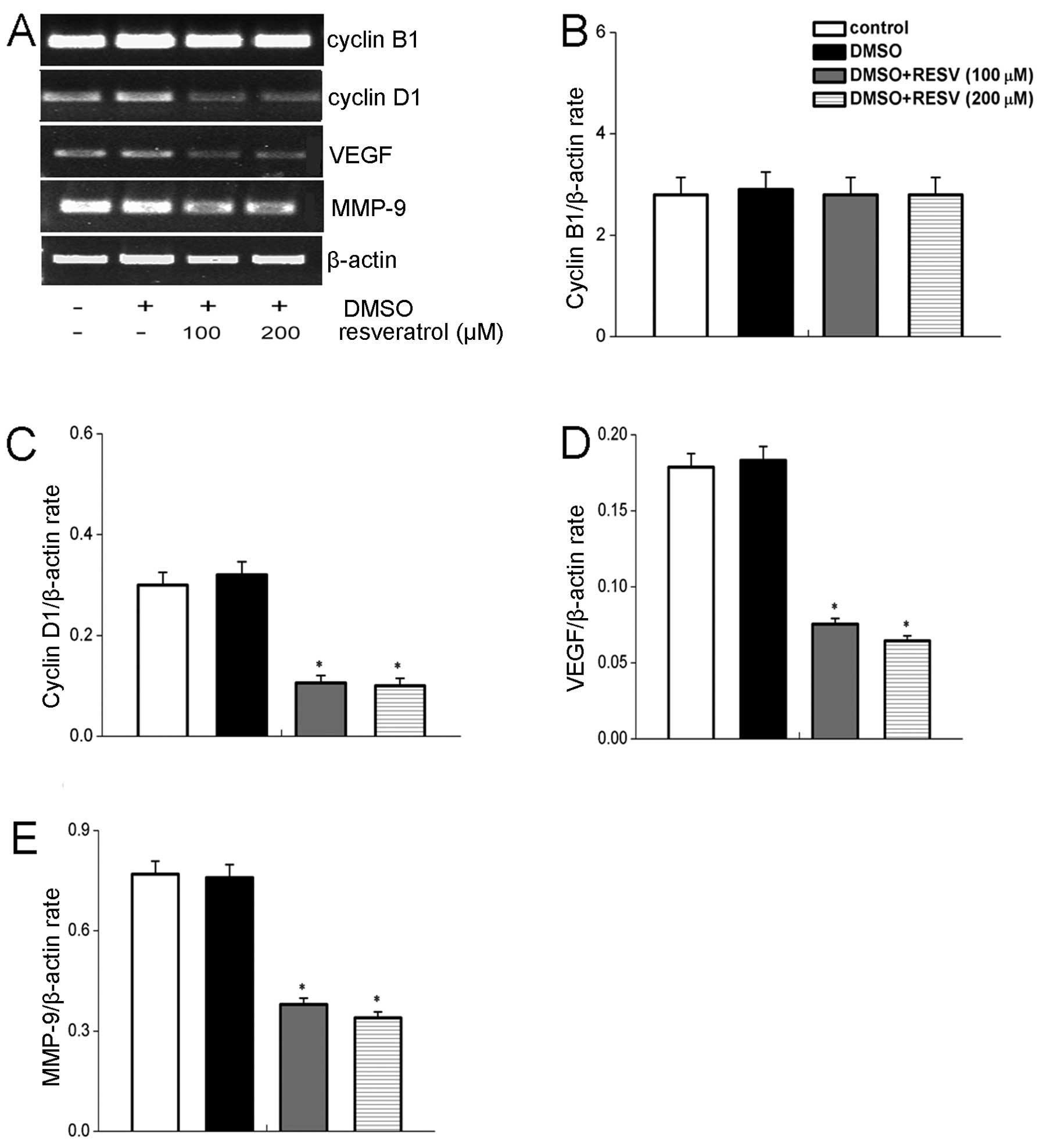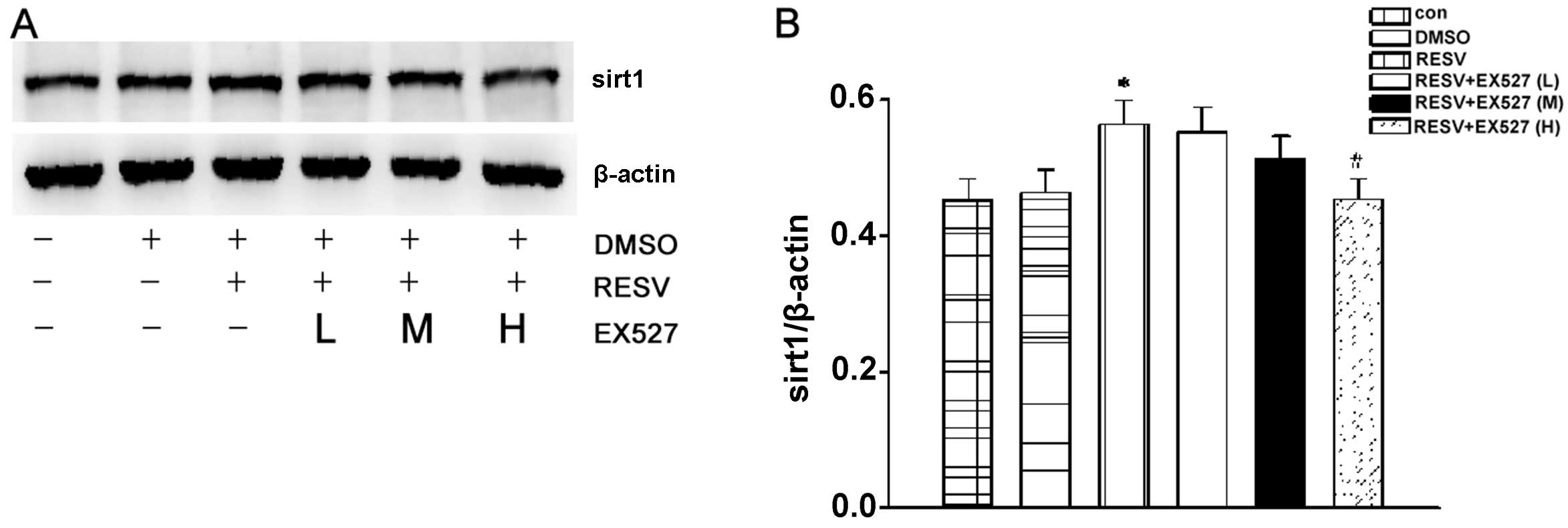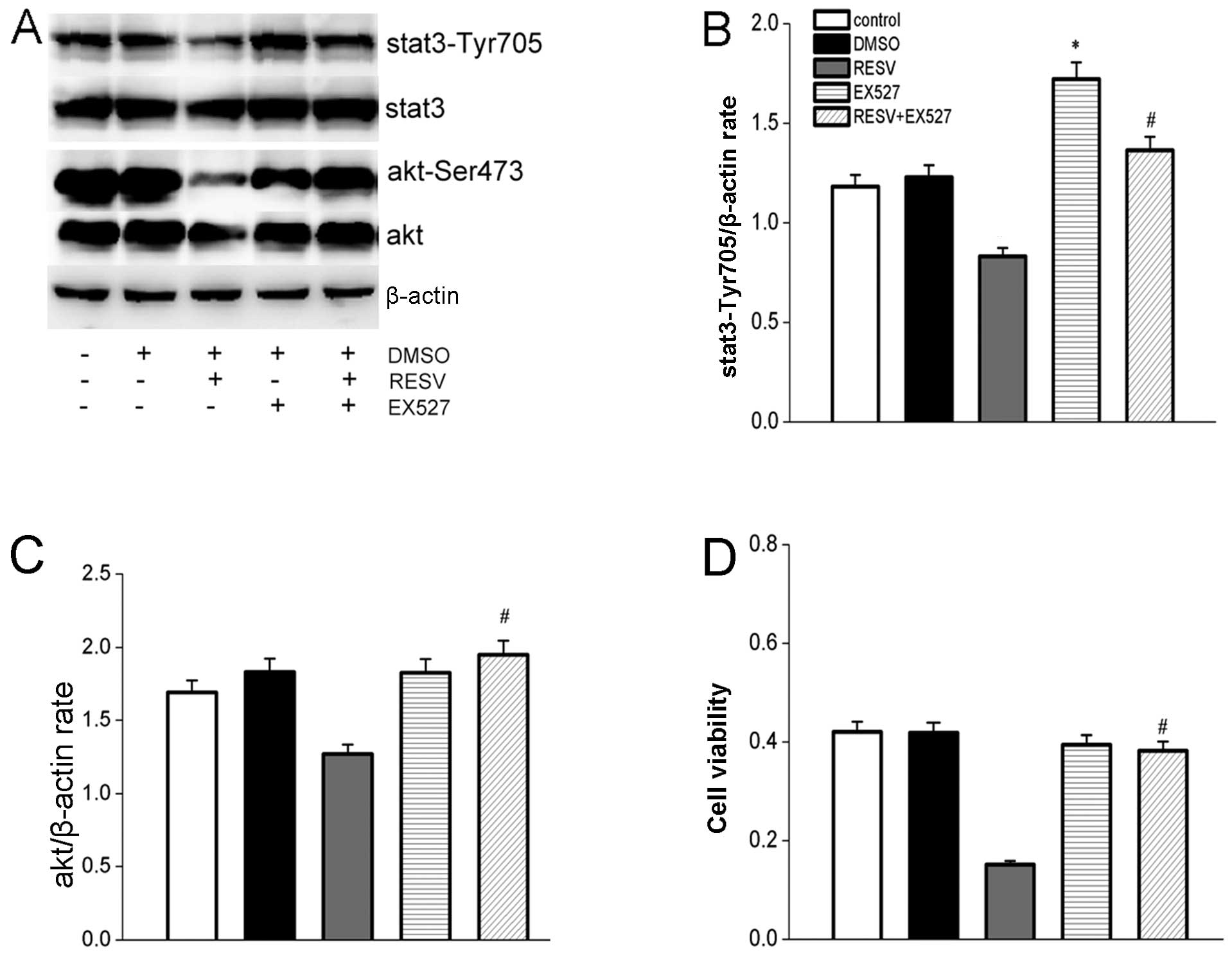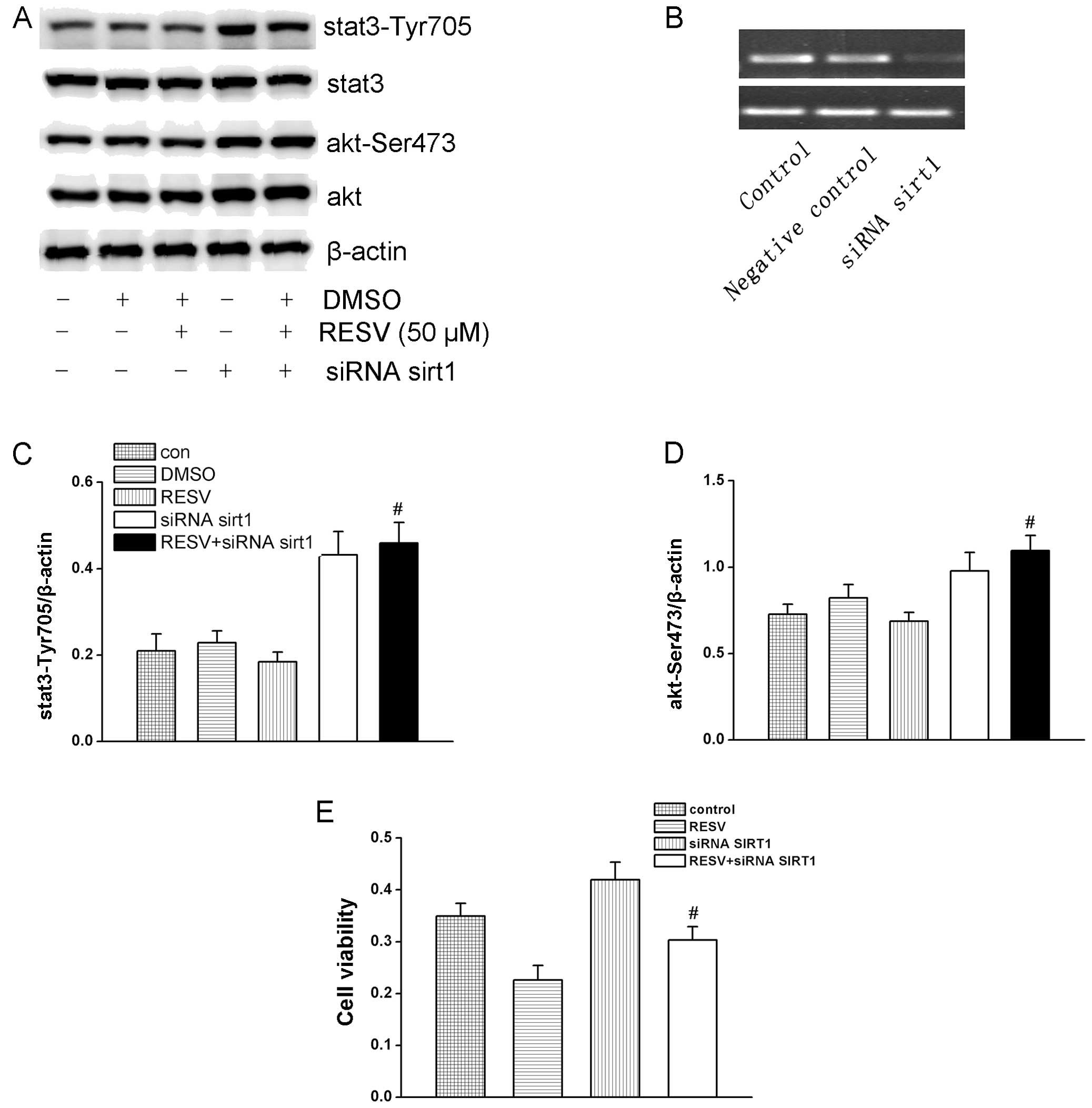|
1
|
El-Serag HB, Hampel H and Javadi F: The
association between diabetes and hepatocellular carcinoma: a
systematic review of epidemiologic evidence. Clin Gastroenterol
Hepatol. 4:369–380. 2006. View Article : Google Scholar : PubMed/NCBI
|
|
2
|
Zheng M, Chen R, Zhong H, et al:
Side-effects of resveratrol in HepG2 cells: reduced pten and
increased bcl-xl mRNA expression. Mol Med Rep. 6:1367–1370.
2012.PubMed/NCBI
|
|
3
|
Bhardwaj A, Sethi G, Vadhan-Raj S, et al:
Resveratrol inhibits proliferation, induces apoptosis, and
overcomes chemoresistance through down-regulation of STAT3 and
nuclear factor-κB-regulated antiapoptotic and cell survival gene
products in human multiple myeloma cells. Blood. 109:2293–2302.
2007.PubMed/NCBI
|
|
4
|
Capiralla H, Vingtdeux V, Venkatesh J, et
al: Identification of potent small-molecule inhibitors of STAT3
with anti-inflammatory properties in RAW 264.7 macrophages. FEBS J.
279:3791–3799. 2012. View Article : Google Scholar : PubMed/NCBI
|
|
5
|
Haghikia A, Stapel B, Hoch M and
Hilfiker-Kleiner D: STAT3 and cardiac remodeling. Heart Fail Rev.
16:35–47. 2011. View Article : Google Scholar
|
|
6
|
Wen S, Li H, Wu ML, et al: Inhibition of
NF-κB signaling commits resveratrol-treated medulloblastoma cells
to apoptosis without neuronal differentiation. J Neurooncol.
104:169–177. 2011.
|
|
7
|
Cho IR, Koh SS, Malilas W, et al: SIRT1
inhibits proliferation of pancreatic cancer cells expressing
pancreatic adenocarcinoma up-regulated factor (PAUF), a novel
oncogene, by suppression of β-catenin. Biochem Biophys Res Commun.
423:270–275. 2012.PubMed/NCBI
|
|
8
|
Kim YJ, Hwang SH, Lee SY, et al:
miR-486-5p induces replicative senescence of human adipose
tissue-derived mesenchymal stem cells and its expression is
controlled by high glucose. Stem Cells Dev. 21:1749–1760. 2012.
View Article : Google Scholar : PubMed/NCBI
|
|
9
|
Nie Y, Erion DM, Yuan Z, et al: STAT3
inhibition of gluconeogenesis is downregulated by SirT1. Nat Cell
Biol. 11:492–500. 2009. View
Article : Google Scholar : PubMed/NCBI
|
|
10
|
Li T, Wang W, Chen H, Li T and Ye L:
Evaluation of anti-leukemia effect of resveratrol by modulating
STAT3 signaling. Int Immunopharmacol. 10:18–25. 2010. View Article : Google Scholar : PubMed/NCBI
|
|
11
|
Pawlus MR, Wang L and Hu CJ: STAT3 and
HIF1alpha cooperatively activate HIF1 target genes in MDA-MB-231
and RCC4 cells. Oncogene. Apr 22–2013.(Epub ahead of print).
|
|
12
|
Li J, Cui G, Sun L, et al: STAT3
acetylation-induced promoter methylation is associated with
downregulation of the ARHI tumor-suppressor gene in ovarian cancer.
Oncol Rep. 30:165–170. 2013.PubMed/NCBI
|
|
13
|
Absood A, Hu B, Bassily N and Colletti L:
VIP inhibits human HepG2 cell proliferation in vitro. Regul Pept.
146:285–292. 2008. View Article : Google Scholar : PubMed/NCBI
|
|
14
|
Baur JA and Sinclair DA: Therapeutic
potential of resveratrol: the in vivo evidence. Nat Rev Drug
Discov. 5:493–506. 2006. View
Article : Google Scholar : PubMed/NCBI
|
|
15
|
Athar M, Back JH, Tang X, et al:
Resveratrol: a review of preclinical studies for human cancer
prevention. Toxicol Appl Pharmacol. 224:274–283. 2007. View Article : Google Scholar : PubMed/NCBI
|
|
16
|
Kotha A, Sekharam M, Cilenti L, et al:
Resveratrol inhibits Src and Stat3 signaling and induces the
apoptosis of malignant cells containing activated Stat3 protein.
Mol Cancer Ther. 5:621–629. 2006. View Article : Google Scholar : PubMed/NCBI
|
|
17
|
Yu LJ, Wu ML, Li H, et al: Inhibition of
STAT3 expression and signaling in resveratrol-differentiated
medulloblastoma cells. Neoplasia. 10:736–744. 2008.PubMed/NCBI
|
|
18
|
Giraud AS, Menheniott TR and Judd LM:
Targeting STAT3 in gastric cancer. Expert Opin Ther Targets.
16:889–901. 2012. View Article : Google Scholar : PubMed/NCBI
|
|
19
|
Deng J, Liu Y, Lee H, et al: S1PR1-STAT3
signaling is crucial for myeloid cell colonization at future
metastatic sites. Cancer Cell. 21:642–654. 2012. View Article : Google Scholar : PubMed/NCBI
|
|
20
|
Tkach M, Coria L, Rosemblit C, et al:
Targeting Stat3 induces senescence in tumor cells and elicits
prophylactic and therapeutic immune responses against breast cancer
growth mediated by NK cells and CD4+ T cells. J Immunol.
189:1162–1172. 2012. View Article : Google Scholar : PubMed/NCBI
|
|
21
|
Sen M, Joyce S, Panahandeh M, et al:
Targeting Stat3 abrogates EGFR inhibitor resistance in cancer. Clin
Cancer Res. 18:4986–4996. 2012. View Article : Google Scholar : PubMed/NCBI
|
|
22
|
Yang CL, Liu YY, Ma YG, et al: Curcumin
blocks small cell lung cancer cell migration, invasion,
angiogenesis, cell cycle and neoplasia through Janus kinase-STAT3
signalling pathway. PLoS One. 7:e379602012. View Article : Google Scholar : PubMed/NCBI
|
|
23
|
Frye RA: Phylogenetic classification of
prokaryotic and eukaryotic Sir2-like proteins. Biochem Biophys Res
Commun. 273:793–798. 2000. View Article : Google Scholar : PubMed/NCBI
|
|
24
|
Chang KT and Min KT: Regulation of
lifespan by histone deacetylase. Ageing Res Rev. 1:313–326. 2002.
View Article : Google Scholar : PubMed/NCBI
|
|
25
|
Sestito R, Madonna S, Scarponi C, et al:
STAT3-dependent effects of IL-22 in human keratinocytes are
counterregulated by sirtuin 1 through a direct inhibition of STAT3
acetylation. FASEB J. 25:916–927. 2011. View Article : Google Scholar : PubMed/NCBI
|
|
26
|
Bernier M, Paul RK, Martin-Montalvo A, et
al: Negative regulation of STAT3 protein-mediated cellular
respiration by SIRT1 protein. J Biol Chem. 286:19270–19279. 2011.
View Article : Google Scholar : PubMed/NCBI
|
|
27
|
Chen X, Cao Y, Lv D, Zhu Z, Zhang J and
Chai Y: Comprehensive two-dimensional HepG2/cell membrane
chromatography/monolithic column/time-of-flight mass spectrometry
system for screening anti-tumor components from herbal medicines. J
Chromatogr A. 1242:67–74. 2012. View Article : Google Scholar
|















